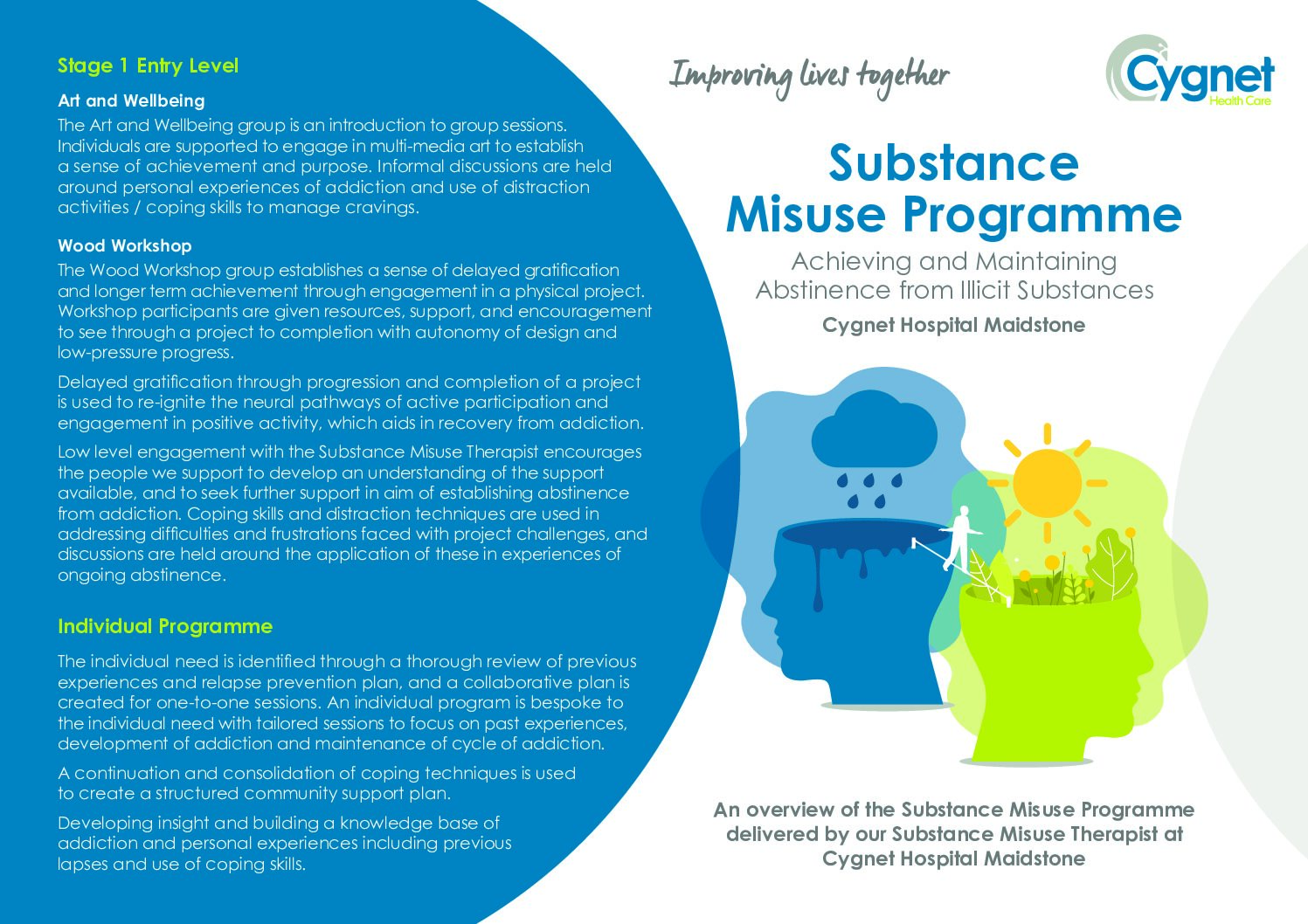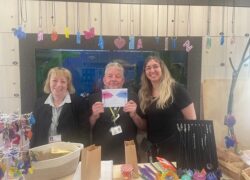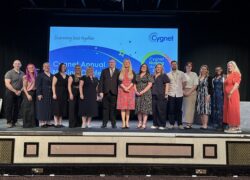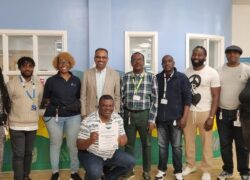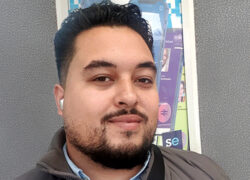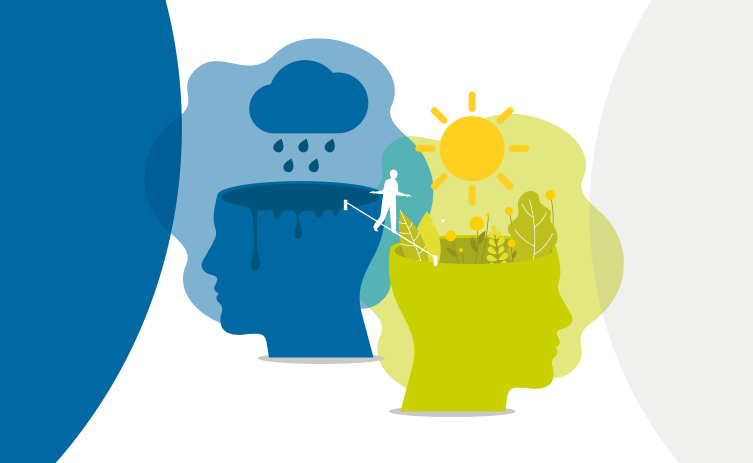
What is Offered?
Individual Sessions and Ad-hoc Support
Individual sessions are delivered by the Substance Misuse Therapist to anyone with a clinically indicated need. They focus on individual pathways to recovery from addiction and establishing a robust relapse prevention plan.
Stage 1 Entry Level Group Sessions
Art and Wellbeing and the Wood Workshop are level 1 entry groups designed to help people gain confidence and comfort in attending group style sessions. These sessions build on the notion that purposeful activity is imperative to recovery, and serve as an introduction to the 10 Week Group Programme.
10 Week Group Programme
The 10 week programme is prescribed by the MDT upon admission or when deemed clinically indicated. It follows a structure designed to promote active engagement in insight building, development of coping skills for cravings, and recovery from addiction.
The Programmes
Individual Programme
The individual need is identified through a thorough review of previous experiences and relapse prevention plan, and a collaborative plan is created for one-to-one sessions. An individual program is bespoke to the individual need with tailored sessions to focus on past experiences, development of addiction and maintenance of cycle of addiction. A continuation and consolidation of coping techniques is used to create a structured community support plan. Developing insight and building a knowledge base of addiction and personal experiences including previous lapses and use of coping skills.
Stage 1 Entry Level
Art and Wellbeing – The Art and Wellbeing group is an introduction to group sessions. Individuals are supported to engage in multi-media art to establish a sense of achievement and purpose. Informal discussions are held around personal experiences of addiction and use of distraction activities / coping skills to manage cravings.
Wood Workshop – The Wood Workshop group establishes a sense of delayed gratification and longer term achievement through engagement in a physical project. Workshop participants are given resources, support, and encouragement to see through a project to completion with autonomy of design and low-pressure progress. Delayed gratification through progression and completion of a project is used to re-ignite the neural pathways of active participation and engagement in positive activity, which aids in recovery from addiction.
Low level engagement with the Substance Misuse Therapist encourages the people we support to develop an understanding of the support available, and to seek further support in aim of establishing abstinence from addiction.
Coping skills and distraction techniques are used in addressing difficulties and frustrations faced with project challenges, and discussions are held around the application of these in experiences of ongoing abstinence.
10 Week Group Programme
- Weeks 1-3: Assessment and Foundation
The initial phase provides an introduction to the programme and to various models of addiction (TIQ, Type 1, and Type 2 addiction). The goal is to ascertain the type of addiction the individual is experiencing. This information is used to ensure bespoke and individualised substance misuse support for each person.
- Weeks 4-7: Insight and Coping skills
This phase focuses on continued insight-building and the introduction of coping techniques. These techniques are demonstrated and practiced using role-play for realistic scenarios the individual may experience, illustrating the efficacy of the coping skills.
- Weeks 8-10: Relapse Prevention
The final weeks focus on relapse prevention planning, developing a clear
awareness of triggers, and promoting the use of purposeful activity in
maintaining abstinence.
- Ongoing Relapse Prevention Building and Planning
Continuation of recovery is encouraged through 12-step individual programmes if clinically indicated. This follow-up plan is tailored to individual needs as established throughout the group programme.
Additional Support
Ad-hoc support sessions are available with the Substance Misuse Therapist for immediate support with difficulties faces in the journey to recovery. Individuals are encouraged and supported to attend community based support groups (AA, NA, CA, etc.)
